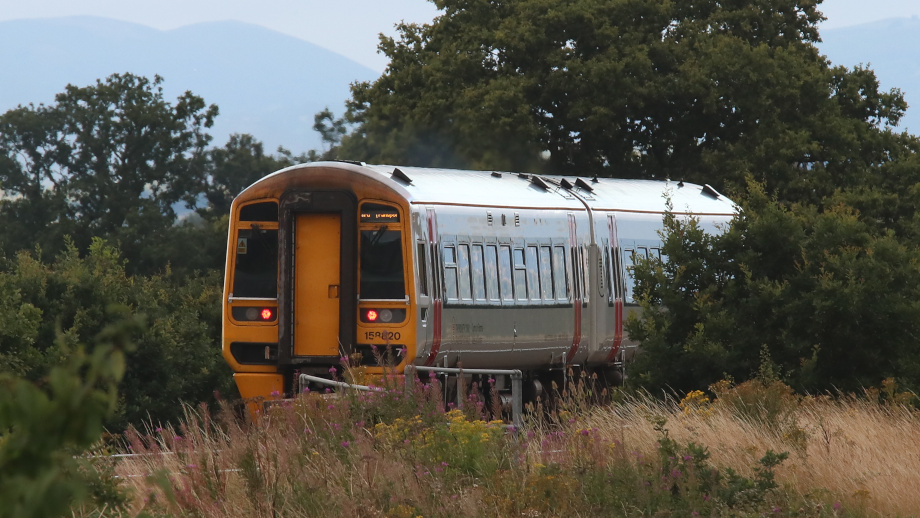Last updated 15th January 2021
The Green Party of England and Wales believes that protecting your personal information is very important. In accordance with Data Protection law we are a Data Controller and accountable for the way we process your data. We have therefore implemented appropriate physical, technical and organisational measures to protect the personal information we have under our control, both online and offline. The Green Party is committed to protecting your privacy and the transparent use of any information you share with us in accordance with our legal obligations. This Privacy Notice sets out in detail the purposes for which we process your personal data, who we share it with, what rights you have in relation to that data and everything else we think is important for you to know.
The Green Party's Privacy Notice may change so please remember to check back from time to time. This is version 2.0 and was last updated on 15th January 2021. Where we have made any changes to this Privacy Notice, we will make this clear on our website or contact you to let you know. We are committed to treating you with respect and openness.
Personal data means any information that can directly or indirectly identify a living person –
- from those data, or
- from those data and other information, which is in the possession of, or is likely to come into the possession of, the data controller and includes any expression of opinion about the individual and any indication of the intentions of the data controller or any other person in respect of the individual.
Contacting us about Data Protection
If you have any questions about this Notice or you would like any more information in regard to how we process, store or use your personal information, please contact The Green Party:
To call: 02036919400
To email: dataprotection@greenparty.org.uk
To write to us in the post: Data Protection Officer, The Biscuit Factory, Unit 215 J Block, 100 Clements Road, SE16 4DG
You also have the right to contact the Information Commissioners Office if you would like to complain about us, please see their contact details below:
To call: 0303 123 1113
Their complaint page is: https://ico.org.uk/global/contact-us/
Who are we?
In this document, when you see words 'we' 'us' or 'our', it refers to The Green Party.
The Green Party are registered with the Electoral Commission under registration ----. We are a 'Data Controller' registered under Z9951530 for the purposes of the Data Protection Act 2018, the EU General Data Protection Legislation 2018 (EU GDPR) and the Data Protection & Electronic Communications Regulation 2019 (UK GDPR). This means we are responsible for and control the processing of your personal information.
Here at The Green Party, we are committed to protecting your personal information and making every effort to ensure that your personal information is processed in a fair, open and transparent manner.
Who is in control?
It is important that you understand who is responsible for keeping your data safe. We are the "controller" of all personal data collected and used by the Green Party of England and Wales for the purposes set out in this Privacy Notice. This means that we are responsible for deciding how and why your data is used and for ensuring that your data is handled legally and safely.
What data do we collect and where from?
Website subscription forms
We collect the details you submit to us when you complete an online form asking us to keep you updated on party activities and related issues.
Petitions and Surveys
We also collect information that you voluntarily provide to us when you respond to petitions or surveys including your responses to any questions they might ask.
Membership Signups
When you join as member of the party, we collect all the details you provide including contact details and any other details that are voluntarily provided. We also collect your payment details where necessary to process your membership subscriptions and donations.
Cookies and IP addresses
We collect information about how you interact with our websites using Cookies and your connection's Internet Connection (IP) Address if your browser is set to accept/provide such.
Local Green Party Organisations
The Green Party of England and Wales is composed of hundreds of individual local parties, nine regional parties and Wales Green Party. The data we obtain from local and regional parties has been collected by those parties directly and relates to any relationship or communications you have with them including meetings, events, local campaigns and correspondence.
The Electoral Register
As a political party we and our local, regional and Wales parties are provided with access to the electoral register for the purposes of canvassing and promotion.
Social Media
We also collect anonymised publicly available information from social networking sites such as Facebook and Twitter, for example likes, shares, tweets and posts about the Green Party and its activities and campaigns. This information is provided to us by the third-party social media platform.
What do we use your data for?
We use the data you provide us to communicate with our membership and supporters about party business, activities and campaigns. From time to time we will also communicate with you about fundraising campaigns we run in order to finance the operation of the party and/or support specific causes.
We use your data, including any voluntarily provided information, to choose which campaigns or Party activity we believe may be of interest to you. Our communications may be via Post, Telephone, Email or Social Media.
Your address information (where provided) is used to identify the local, regional (or Wales) Green Party in your area and may be used in an automated way to inform you of campaigns of geographical relevance.
As a Political Party we use your expressed political opinions to information our campaigning including what issues we promote, how we contact you and what we say to you.
This ensures that we can continue to represent supporters' views in a democratic way and to help us generate revenue to fund our political activities.
What is our legal basis for using your data?
In order to process personal data lawfully we may use different lawful grounds for processing. For example, where the law permits, we may use Public Task to send Freepost communications. We may use Consent where it is informed and specific to the purposes for which it was gathered, such as for fundraising or campaigning. In a similar way we may use our Legitimate Interest where we believe the individual may have a reasonable expectation that their data is processed. For members of the Party, we may use Contractual Obligation to process personal data. Broadly, our processing activities include but are not limited to;
Informing Members and Supporters of Green Party Activities and campaigns
We process this personal data on the basis that we ensure that we communicate effectively with actual and potential supporters of the Green Party and its campaigns. This ensures that we can continue to represent supporters' views in a democratic way. This processing is considered to be fundamental to our role in promoting democracy in the public interest. Political opinions are classed as ‘special category’ data under data privacy legislation and our processing of this data is in accordance with Article 9 (g) of the General Data Protection Regulations which states that “processing is necessary for reasons of substantial public interest, on the basis of Union or Member State law…”
Communicating with Members about their membership and constitutional role within the Party
We process your membership and personal data with respect to your membership position in line with the constitution of the Party and your agreed participation. As a membership organisation we require that we be able to communicate with members about constitutional issues (such as leadership elections, conference and changes to the constitution) this is considered to be a fundamental part of our role in promoting democracy in the public interest.
Fundraising
We may from time to time contact you directly asking for donations to help fund the work of the Party. Without funding it would be impossible to function as a Political Party and therefore such communication is considered to be a fundamental part of our role in promoting democracy.
Canvassing of Political Opinions
As a political party we require an understanding of the political opinions of the UK electorate both nationally and on local campaigns and issues. This understanding is considered to be a fundamental part of our role in promoting democracy. We acknowledge that there is a difference between genuine research activities which may identify the views of the public and help to shape the Party’s policies for the future and gathering data which may be used to target individuals with marketing materials to encourage support.
Who do we share your data with?
Local Green Party and National Office
The data we have is shared with your local and regional Green Party which is where your membership will reside. Data you provide will be shared between your local and regional (or Wales) party and the Green Party of England and Wales central office. The local and regional (or Wales) parties and the central party are joint data controllers and as such have put in place appropriate data sharing arrangements.
Donations and financial information
The personal details you provide will be held internally by our finance officers and will be shared with the Electoral Commission in the case where your donations exceed declarable thresholds £7,500 per person per calendar year for the National Party and £1,500 per year for our local, regional parties and Wales GP (see http://www.electoralcommission.org.uk for current thresholds). The personal details you provide will be held internally and the bank details you provide will be kept securely by our payment processor Chargebee (manages subscription), GoCardless (for Direct Debits), or Stripe (for card payments). Your bank details will only be shared with your bank and ours.
Third Party Platforms
Google
The Green Party of England and Wales website uses Google Analytics, a web analytics service provided by Google, Inc. (Google). Google Analytics uses cookies, which are text files placed on your computer, to help the website analyse how users use the site. The information generated by the cookie about your use of the website (including your IP address) will be transmitted to and stored by Google on servers in the United States.
Google will use this information for the purpose of evaluating your use of the website, compiling reports on website activity for website operators and providing other services relating to website activity and internet usage. Google may also transfer this information to third parties where required to do so by law, or where such third parties process the information on Google's behalf. Google will not associate your IP address with any other data held by Google. You may refuse the use of cookies by selecting the appropriate settings on your browser. By using this website, you consent to the processing of data about you by Google in the manner and for the purposes set out above. We use Google Analytics to make sure our online campaigning is as effective as possible, and it is also one of the ways we make sure that this website is clear and usable.
You can read Google's privacy policy here for further information.
Facebook
With your permission, our website utilises the Conversion Tracking Pixel service of Facebook Inc., 1601 S. California Ave., Palo Alto, CA 94304, USA (“Facebook”). This tool allows us to follow the actions of users after they are redirected to a provider’s website by clicking on a Facebook advertisement. We are thus able to record the efficacy of Facebook advertisements for statistical and market research purposes.
The collected data remain anonymous. This means that we cannot see the personal data of any individual user. However, the collected data are saved and processed by Facebook. We are informing you on this matter according to our information at this time.
Where you comment on a social media post we have made, we may repost your comment or share your comment on another social media channel. We will do this in our Legitimate Interest. Where you post information on our social media channels which are in the public domain, we may not be able to control information which is reposted or copied by a third parties.
Facebook is able to connect the data with your Facebook account and use the data for their own advertising purposes, in accordance with Facebook’s Data Use Policy found here. Facebook Conversion Tracking also allows Facebook and its partners to show you advertisements on and outside Facebook. In addition, a cookie will be saved onto your computer for these purposes.
Other processors
From time to time we may need to share some of your data with third party data processors (such as technology providers, website hosts, online systems). Where we do so we will have a data processing agreement with the third party, and where they are located outside the European Economic Area (EEA) we will ensure that they provide enough security and privacy to enable us to meet our legal obligations to you.
An example of this would be where we use a third-party email provider to deliver our emails to you. We would need to share your email address with the supplier to carry out this function, but their processing of your data would be in line with a data processing agreement we would have with them.
How long do we keep your data for?
Where you join as a member of the Party your data will be held for as long as you maintain your membership. If your membership lapses, your status may change to a supporter or may be deleted from our records.
Where you have donated to the Party or one of its campaigns the related data may be held for a period of 6 years to ensure we can comply with our legal obligations.
What rights do you have?
You have a number of rights under data protection law. Some of these rights and how you can exercise them are set out in this section, more information can be found from the Information Commissioners office (https://ico.org.uk/for-organisations/guide-to-the-general-data-protection-regulation-gdpr/individual-rights/). If you are based outside of the UK, the complaint should be directed to the relevant Data Protection Authority in that Country.
We will normally need to ask you for proof of your identity before we can respond to a request to exercise any of the rights in this section and we may need to ask you for more information, for example to help us to locate the personal data or ask for a 'scope' that your request relates to.
The right to be informed
You have the right to be informed as to how we use your data and under what lawful basis we carry out any processing. This privacy policy sets this information out however if you would like further information or feel that your rights are not being respected please email dataprotection@greenparty.org.uk.
A right to access your information
You have a right to ask us to send you a copy of your all personal data that we hold about you (subject to some exceptions). A request to exercise this right is called a "subject access request" and must be made in writing to: dataprotection@greenparty.org.uk or to: Data Protection Officer, Green Party of England and Wales, The Biscuit Factory, Unit 201 A Block, 100 Clements Road, London, SE16 4DG.
A right to object to us processing your information
You have a right to object to us processing any personal data that we process where we are relying on legitimate interests as the legal basis of our processing. You also have the right to withdraw your consent from our processing that requires it (such as our email communications). Every communication will have an option for you to withdraw your consent directly, or you can email dataprotection@greenparty.org.uk at any time to exercise this right.
A right to ask us not to market to you
You have the right to opt-out of any marketing or personally addressed direct mailings we send to you. If the communication is electronic it will include simple links and instructions to ‘unsubscribe’. For other media please email dataprotection@greenparty.org.uk or write to Data Protection Officer, Green Party of England and Wales, The Biscuit Factory, Unit 201 A Block, 100 Clements Road, London, SE16 4DG.
A right to have inaccurate data corrected
You have a right to ask us to correct inaccurate data that we hold about you. If we are satisfied that the new data you have provided is accurate, we will correct your personal data as soon as possible.
A right to have your data erased
You have a right to ask us to delete your personal data in certain circumstances, for example if we have processed your data unlawfully or if we no longer need the data for the purposes set out in this Privacy Notice.
A right to have processing of your data restricted
You can ask us to restrict processing of your personal data in some circumstances, for example if you think the personal data is inaccurate and we need to verify its accuracy, or if we no longer need the data but you require us to keep it so that you can exercise your own legal rights. Restricting your personal data means that we only store your personal data and don't carry out any further processing on it unless you consent, or we need to process the data to exercise a legal claim or to protect a third party or the public.
To exercise any of the rights above please email dataprotection@greenparty.org.uk or write to Data Protection Officer, Green Party of England and Wales, The Biscuit Factory, Unit 201 A Block, 100 Clements Road, London, SE16 4DG.
To further understand your rights please visit the website of the Information Commissioner's Office (ICO) at http://www.ico.gov.uk.



